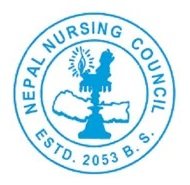The Nepal Nursing Council (NNC) is a regulatory body that regulates and oversees nursing education, practice, and standards in Nepal. The Nepal Nursing Council (NNC) is a statutory body for establishing uniform and high standards of Nursing education in Nepal. The Council grants recognition of nursing qualifications, gives accreditation to Nursing schools, administers Nursing Licensing Exam (NLEN) and maintains the registration of Registered Nurses in Nepal. Established in 1972 under the Nepal Nursing Council Act, the NNC plays a pivotal role in ensuring the quality of nursing care and education in the country. This essay will delve into the history, functions, structure, and significance of the Nepal Nursing Council.

Nepal Nursing Council (NNC)
History and Establishment:
The establishment of the Nepal Nursing Council marked a significant milestone in the development of nursing profession in Nepal. Prior to its formation, nursing education and practice in the country lacked standardization and regulation. Recognizing the need for a regulatory body to oversee nursing affairs, the Nepal Nursing Council Act was enacted in 1972. This legislation provided the legal framework for the establishment of the NNC and outlined its functions and responsibilities.

Functions and Responsibilities:
The Nepal Nursing Council is entrusted with several key functions aimed at promoting excellence in nursing education and practice. Some of its primary responsibilities include:
- Regulation of Nursing Education: The NNC is responsible for accrediting nursing schools and programs to ensure they meet established standards of education and training. It sets guidelines for curriculum development, faculty qualifications, and infrastructure requirements for nursing institutions.
- Licensing and Registration: The council is responsible for licensing and registering qualified nurses to practice in Nepal. It sets criteria for licensure examinations and maintains a registry of licensed nurses to uphold professional standards and accountability.
- Continuing Professional Development: The NNC promotes lifelong learning and professional development among nurses by offering certification programs, workshops, and seminars. It encourages nurses to enhance their skills and knowledge to meet evolving healthcare needs.
- Ethical Standards: Upholding ethical standards is paramount in nursing practice. The NNC establishes a code of ethics and professional conduct for nurses, ensuring integrity, compassion, and respect in patient care delivery.
- Quality Assurance: The council monitors and evaluates nursing practice to ensure quality care and patient safety. It conducts periodic inspections of healthcare facilities and nursing schools to assess compliance with established standards.

Structure and Governance:
The Nepal Nursing Council operates under the Ministry of Health and Population and is governed by a board of directors appointed by the government. The board consists of representatives from various stakeholders, including nursing professionals, educators, policymakers, and the public. The council’s executive committee, headed by the president, oversees day-to-day operations and decision-making processes.
The NNC is supported by dedicated staff members who facilitate its functions, including licensing, accreditation, examination administration, and administrative tasks. The council collaborates with national and international organizations, such as the International Council of Nurses (ICN) and the World Health Organization (WHO), to exchange knowledge, best practices, and resources.

Significance and Impact:
The Nepal Nursing Council plays a crucial role in advancing the nursing profession and improving healthcare outcomes in Nepal. By setting and enforcing standards of education, practice, and ethics, the council ensures that nurses are competent, skilled, and accountable in their roles. This contributes to the delivery of safe, effective, and compassionate care to individuals, families, and communities across the country.
Furthermore, the NNC’s emphasis on continuing professional development fosters a culture of lifelong learning among nurses, enabling them to stay abreast of advancements in healthcare and technology. This, in turn, enhances the quality of care and promotes innovation in nursing practice.
Moreover, the council’s regulatory oversight helps safeguard the interests of patients and the public by ensuring that nursing services meet established standards of safety and quality. By licensing qualified professionals and accrediting reputable institutions, the NNC instills trust and confidence in the nursing profession.
In conclusion, the Nepal Nursing Council plays a pivotal role in shaping the nursing landscape in Nepal. Through its regulatory functions, the council promotes excellence, professionalism, and ethical conduct in nursing education and practice. As Nepal’s healthcare system continues to evolve, the NNC remains committed to advancing the nursing profession and improving health outcomes for all.
See more:
